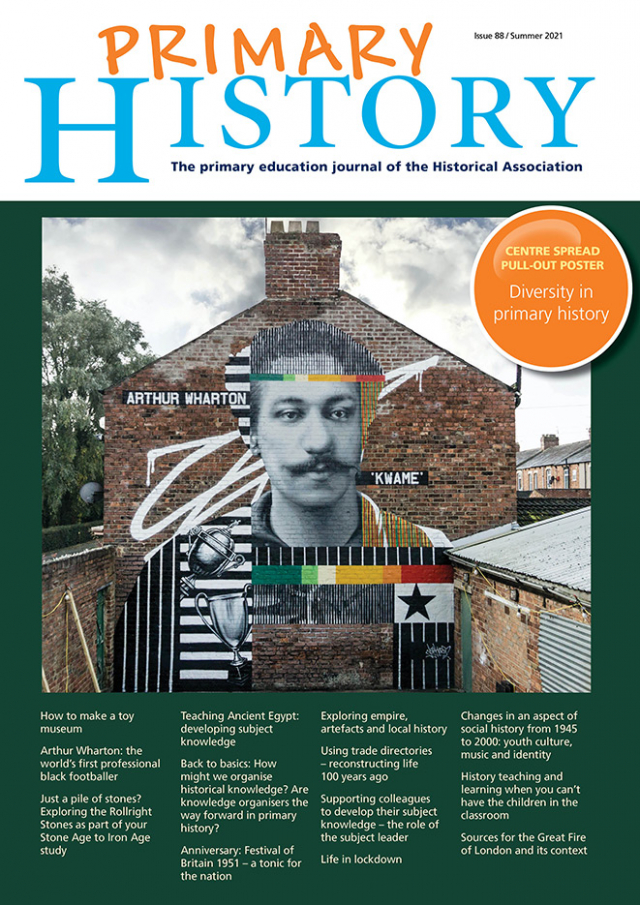Primary History 88: Out now
The primary education journal of the Historical Association

Editorial
It is sometimes the case that the history we are exposed to changes in a way that is barely perceptible. At other times the changes have been momentous. Some have been long lasting, others fleeting. The time that primary history often felt like a support act for the Literacy Strategy seems light years away. Even further was a content experience that focused almost exclusively on English events led by Christian men.
Just looking through the pages of Primary History demonstrates the huge broadening of what constitutes school history. Benin, Shang China, Islamic civilisation, the Maya or the Indus Valley were rarely considered as teaching topics. In the wider historical sphere, types of history have developed their own specialisms and many are now appearing in some primary history classes. For example, gender, ethnic minorities, LGBT, family history, cultural history, contemporary history, on-place studies, the history of childhood are just some elements that have meant schools have wanted to embrace a more inclusive and balanced history.
That does not, of course, mean that there is no room for our traditional narratives and some of the great civilisations of the past. Decolonisation of the curriculum does not mean throwing out all content that previously existed. However, good history surely involves constant scrutiny to see if the range of new material and enquiry can help provide an even more relevant curricular experience.
This edition aims to fulfil that. Besides more popular topics such as Ancient Egypt and the Great Fire of London, there are articles on non-traditional significant individuals, ancient monuments that go beyond Stonehenge, a development study that looks at recent music and youth culture, a favourite place that is a former mental institution, a new way of looking at famous houses owned by the National Trust, and a centre piece showing the range of types of diversity that Primary History has addressed in recent years.
The past year has certainly been a turbulent one. It is easy to assume that we will soon be able to return to ‘normal’. Yet ‘normal’ is not a fixed thing. It is constantly developing with teachers incorporating new exciting contents and methods. Despite Covid-19, the pages of Primary History suggest that the subject is in rude health.

